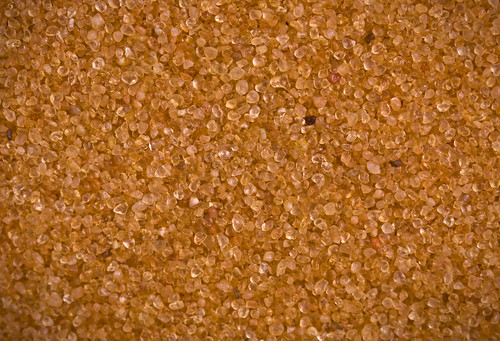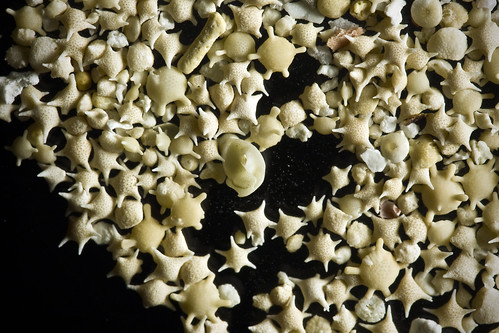Recently in shooting Category
I’ll confess, I never thought of ‘sand collecting’ as being a thing until now. Apparently people do it. Who knew?
However, there’s something rather beautiful about this collection of photographs of sand. We don’t get many geology or earth science films for SciCast, and there’s clearly some interest to be had in exploring the world around you in close-up detail. You may not have a proper macro lens for your camera, but it’s surprising what you can achieve filming through a magnifying glass or a photographer’s loupe. Here’s a picture I took with one of those and a really rubbish old mobile phone camera:
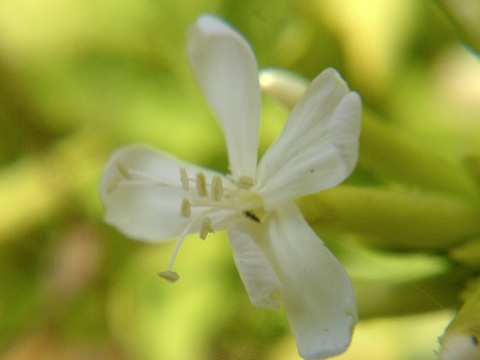
Could be worse, right?
What can you tell us about sand formation, or different types of soil or rock, or plant reproduction, using these sorts of detail shots?
I can’t wrap up this post without one more picture, though: star sand. Who knew this stuff existed? Click through for notes from the photographer.
(sand photos by Flickr user Mouser Williams, published under CC BY-NC-SA.)
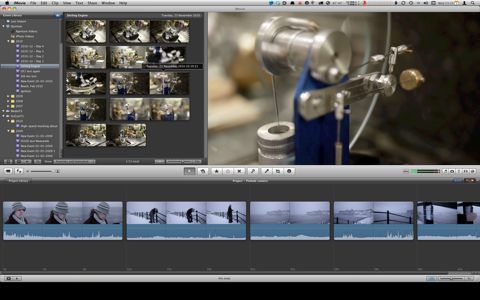
If you’ve read the appropriate bits of Film School, you’ll know that we’re big fans of iMovie. It’s terrific editing software, and the biggest problem is that you need a Mac to run it. Later this month, however, the somewhat anaemic iPhone/iPod touch/iPad version of iMovie is seeing a huge update, and from the snippets we’ve been shown so far it looks just as wondrous as its desktop counterpart.
We’ll do our best to find out just how good the camera in the new iPad 2 is — if it’s anywhere near the standard of a Flip or (still our favourite!) Kodak Zi8, it’ll be hard to beat. The ability to shoot, edit, and upload a film all from one device is pretty much the goal here, and it looks like we might finally have got there.
The BBC’s College of Production is terrific and all, but it’s a bit… well, it’s a bit straight-laced BBC, isn’t it?
This isn’t. At all:
The whole of Vimeo Video School is a little crazy, but sometimes that’s a good thing, right? Right?
I’ve been watching some of the BBC’s College of Production material, looking for things that might be useful for SciCast film-makers. It’s a bit tricky to ferret out, though, as they’re still struggling a little with what tone and level to pick — their films tend to use quite proper jargon, but cover material that you probably know already if you understand the language they’re using. Odd.
I did like this, however, which illustrates a range of angles that you might take of, say, somebody doing an experiment on a lab bench:
Ignore any bits of the voice-over that don’t make sense, and have a think about how working like this might affect the film you’re making. Chances are you don’t need to get this technical for SciCast, but sometimes knowing what’s possible and how to think can either solve a problem for you, or add that little extra something that lifts your film above the competition.
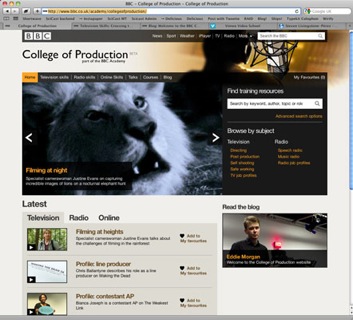 Fresh today: BBC College of Production. A hugely ambitious website that’s planning to cover the full spectrum of television programme-making skills and techniques. Which could take years, but there’s already an impressive range of material. Some of it’s way over-the-top for SciCast’s approach to video, but there are some gems in there.
Fresh today: BBC College of Production. A hugely ambitious website that’s planning to cover the full spectrum of television programme-making skills and techniques. Which could take years, but there’s already an impressive range of material. Some of it’s way over-the-top for SciCast’s approach to video, but there are some gems in there.
We’ll be rummaging through and bringing you our picks over the next few weeks, but do let us know if you find something juicy. It’s well worth a look.
“What camera should I buy?” is just about the most common question I get asked by prospective SciCast film-makers. My usual reply is “What have you got already?” — most people, it seems, have a mobile phone that can record video, or a stills camera that has a video mode, or a mate who has a video camera, or there’s something stashed away in the back of the cupboard in school, or…
When people actually want an answer, however, things get trickier. Broadly, you get what you pay for. We’ve some basic notes on the main SciCast site to get you started, but it’s hard to know what you’re actually getting for your money.
Enter the BBC. Springwatch last week featured an excellent story with a pair of teenage brothers who are keen wildlife cameramen. It’s a lovely piece, but it’s also interesting (and useful) since it sets footage from their cameras alongside professional equipment. The brothers are using cheap-and-cheerful Sony miniDV cameras, and the footage from them looks rather flat and blurry, and somewhat purple-edged, next to the shots from the ‘proper’ camera.
But you know what? Once the clips are compressed down to web video quality, it doesn’t make anything like as much difference as you might expect. Having a good eye is more important than having the ‘best’ camera gear.
Don’t believe me? You’ve three more days to catch the film on iPlayer. It starts about 24 minutes in.

